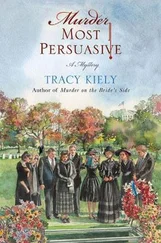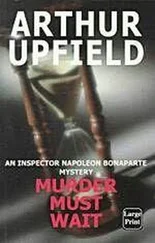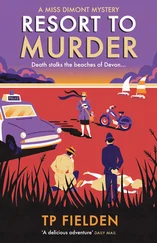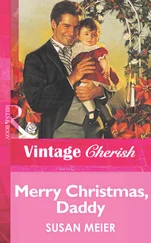One advantage of the job is that employees—even temporaries like me— are allowed to buy goods at a considerable discount, which helps with the Christmas gift problem. As a matter of fact, I had already decided to buy a Teddy bear for one of my nephews, and I mentioned as much.
“Well, you’d better take it right away,” remarked Miss MacArthur, “because I heard Mr. Harrington say he was taking two, and I think Disaster has her eye on one.” Disaster was the unfortunate but inevitable nickname of Miss Aster, who had been with the store for thirty-one years but still made mistakes with her stockbook. I felt sorry for the old girl. I had overheard a conversation between Mr. Harrington, the department manager, and Mr. Andrews, the deputy store manager, and so I knew—but Disaster didn’t—that she would be getting the sack as soon as the Christmas rush was over.
Meanwhile, Miss MacArthur was arranging the bears on a shelf. They sat there in grinning rows, brown and woolly, with boot-button eyes and red ribbons round their necks.
It was then that Father Christmas came in. He’d been in the cloakroom changing into his costume—white beard, red nose, and all. His name was Bert Denman. He was a cheery soul who got on well with the kids, and he’d had the Father Christmas job at Barnum’s each of the three years I’d been selling there. Now he was carrying his sack, which he filled every morning from the cheap items in the stockroom. A visit to Father Christmas cost 50 pence, so naturally the gift that was fished out of the sack couldn’t be worth more than 20 pence. However, to my surprise, he went straight over to the row of Teddy bears and picked one off the shelf. For some reason, he chose the only one with a blue instead of a red ribbon.
Miss MacArthur was on to him in an instant. “What d’you think you’re doing, Mr. Denman? Those Teddies aren’t in your line at all—much too dear. One pound ninety, they are.”
Father Christmas did not answer, and suddenly I realized that it was not Bert Denman under the red robe. “Wait a minute,” I said. “Who are you? You’re not our Father Christmas.”
He turned to face me, the Teddy bear in his hand. “That’s all right,” he said. “Charlie Burrows is my name. I live in the same lodging house with Bert Denman. He was taken poorly last night, and I’m standing in for him.”
“ Well .” said Miss MacArthur. “How very odd. Does Mr. Harrington know?”
“Of course he does,” said Father Christmas.
As if on cue, Mr. Harrington himself came hurrying into the stockroom. He always hurried everywhere, preceded by his small black mustache. He said, “Ah, there you are. Burrows. Fill up your sack, and I’ll explain the job to you. Denman told you about the Teddy bear, did he?”
“Yes, Mr. Harrington.”
“Father Christmas can’t give away an expensive bear like that, Mr. Harrington,” Miss MacArthur objected.
“Now, now, Miss MacArthur. it’s all arranged,” said Harrington fussily. “A customer came in yesterday and made a special request that Father Christmas should give his small daughter a Teddy bear this morning. I knew this consignment was due on the shelves, so I promised him one. It’s been paid for. The important thing, Burrows, is to remember the child’s name. It’s... er... I have it written down somewhere.”
“Annabel Whitworth,” said Father Christmas. “Four years old, fair hair, will be brought in by her mother.”
“I see that Denman briefed you well.” said Mr. Harrington, with an icy smile. “Well, now, I’ll collect two bears for myself—one for my son and one for my neighbor’s boy—and then I’ll show you the booth.”
Miss Aster arrived just then. She and Miss MacArthur finished uncrating the bears and took one out to put on display next to a female doll that, among other endearing traits, actually wet its diaper. Mr. Harrington led our surrogate Father Christmas to his small canvas booth, and the rest of us busied and braced ourselves for the moment when the great glass doors opened and the floodtide was let in. The toy department of a big store on December 23 is no place for weaklings.
It is curious that even such an apparently random stream of humanity as Christmas shoppers displays a pattern of behavior. The earliest arrivals in the toy department are office workers on their way to their jobs. The actual toddlers, bent on an interview with Father Christmas, do not appear until their mothers have had time to wash up breakfast, have a bit of a go around the house, and catch the bus from Kensington or the tube from Uxbridge.
On that particular morning it was just twenty-eight minutes past ten when I saw Disaster, who was sitting in a decorated cash desk labeled “The Elfin Grove,” take 50 pence from the first parent to usher her child into Santa’s booth. For about two minutes the mother waited, chatting quietly with Disaster. Then a loudly wailing infant emerged from the booth.
The mother snatched her up, and—with that sixth sense that mothers everywhere seem to develop—interpreted the incoherent screams. “She says that Father Christmas won’t talk to her. She says he’s asleep.”
It was clearly an emergency, even if a minor one, and Disaster was already showing signs of panic. I excused myself from my customer—a middle-aged gentleman who was playing with an electric train set—and went over to see what I could do. By then, the mother was indignant.
“Fifty pence and the old man sound asleep and drunk as like as not, and at half-past ten in the morning. Disgraceful, I call it. And here’s poor little Poppy what had been looking forward to—”
I rushed into Father Christmas’s booth. The man who called himself Charlie Burrows was slumped forward in his chair, looking for all the world as if he were asleep; but when I shook him, his head lolled horribly, and it was obvious that he was more than sleeping. The red robe concealed the blood until it made my hand sticky. Father Christmas had been stabbed in the back, and he was certainly dead.
I acted as fast as I could. First of all, I told Disaster to put up the CLOSED sign outside Santa’s booth. Then I smoothed down Poppy’s mother by leading her to a counter where I told her she could select any toy up to one pound and have it free. Under pretext of keeping records, I got her name and address. Finally I cornered Mr. Harrington in his office and told him the news.
I thought he was going to faint. “Dead? Murdered? Are you sure, Mr. Borrowdale?”
“Quite sure, I’m afraid. You’d better telephone the police, Mr. Harrington.”
“The police! In Barnum’s! What a terrible thing! I’ll telephone the deputy store manager first and then the police.”
As a matter of fact, the police were surprisingly quick and discreet. A plainclothes detective superintendent and his sergeant, a photographer, and the police doctor arrived, not in a posse, but as individuals, unnoticed among the crowd. They assembled in the booth, where the deputy manager—Mr. Andrews—and Mr. Harrington and I were waiting for them.
The superintendent introduced himself—his name was Armitage—and inspected the body with an expression of cold fury on his face that I couldn’t quite understand, although the reason became clear later. He said very little. After some tedious formalities Armitage indicated that the body might be removed.
“What’s the least conspicuous way to do it?” he asked.
“You can take him out through the back of the booth,” I said. “The canvas overlaps right behind Santa’s chair. The door to the staff quarters and the stockroom is just opposite, and from there you can take the service lift to the goods entrance in the mews.”
The doctor and the photographer between them carried off their grim burden on a collapsible stretcher, and Superintendent Armitage began asking questions about the arrangements in the Father Christmas booth. I did the explaining, since Mr. Harrington seemed to be verging on hysteria.
Читать дальше












